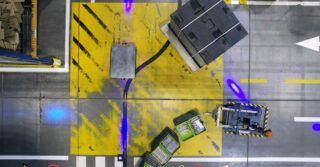The Polish Fiuka factory is a producer of parts that are made as a result of the cold plastic processing of metal. These products are used in body technology, active safety precautions, exhaust systems, engines and drive technology. According to the company’s president, Hugo Bischopink, the industry in which Fiuka operates is extremely demanding: “We are a specialist in cold forming of metal, therefore all products introduced to the market are difficult parts, requiring excellent quality. Therefore, it can be said that each order we receive is unusual and difficult”.
Fischer & Kaufmann components are widely used in the automotive industry. As the company’s representatives assure, the airbag elements produced by it have been improving the safety of drivers on the road for years. They are used in over a hundred types of vehicles – from small to luxury cars.
These precision molded parts from high-strength steels are produced using the transfer method on automatic molding machines with a pressure of 315–400 t. As the company’s experts reveal, the desired surface tension of the parts is obtained as a result of a special cleaning process with a final oiling process. These components are only used in driver and passenger airbags and meet high safety standards.
“Airbag components are deep-drawn parts that are produced in our pressing plant,” explains the company’s president. “These are primarily parts for the driver’s airbag, the primary function of which is to take over an explosive charge in order to escape the gas when the airbag is activated.” When it comes to plastic working, the company has at its disposal deep-drawing presses with a pressure of 150–1600 t, on which steel, stainless steel, titanium and aluminum are processed.
The second branch of the company’s activity is chassis technologies. The company’s portfolio includes many products of this type – from a spring cup with and without a pressed seat, through handles, the bottom of the tank, to composite components, welded groups for the production of shock absorbers, e.g. composite forks or combined containers.
The company also produces accessories for the assembly of the control arm, axle and shock absorbers. These parts are made of high-strength steel or other special steel alloys, and they are produced thanks to transfer and progressive tools and automatic metal forming machines with a pressure of up to 800 tons.
Due to the various forms of profiled engine parts and the running gear, Fiuka specialists use rolling as a more attractive form of production from the financial point of view. The company is able to produce parts with a diameter of 60-250 mm. The profiling technology uses special-purpose machines that have been adapted to the company’s processes and needs, such as: automated rolling lines for the production of rotationally symmetrical components made of steel or aluminum for installation in engines or drive systems.
The company’s customers can also find a wide range of fabrications for applications in engines and drive systems in its portfolio. Parts produced for engines include various types of pulleys and timing belt tensioner rollers, while for drive systems, for example, pistons, piston carriers, clamping discs, as well as clutch flanges or supports are produced.
As the company’s experts assure, all these elements are weight-optimized details, with variously complex geometries, tight tolerances and high surface quality in the functional areas of special features (so that there are no operational disturbances in the area of components that play a special role) . Components, often made of high-strength steels, are produced in deep drawing processes as batch parts or semi-finished products on modern servo presses with a pressure of up to 1500 tons.
Post-processing takes place on automated CNC centers, rolling lines, presses and washers with final 100% control of the functional areas of special features.
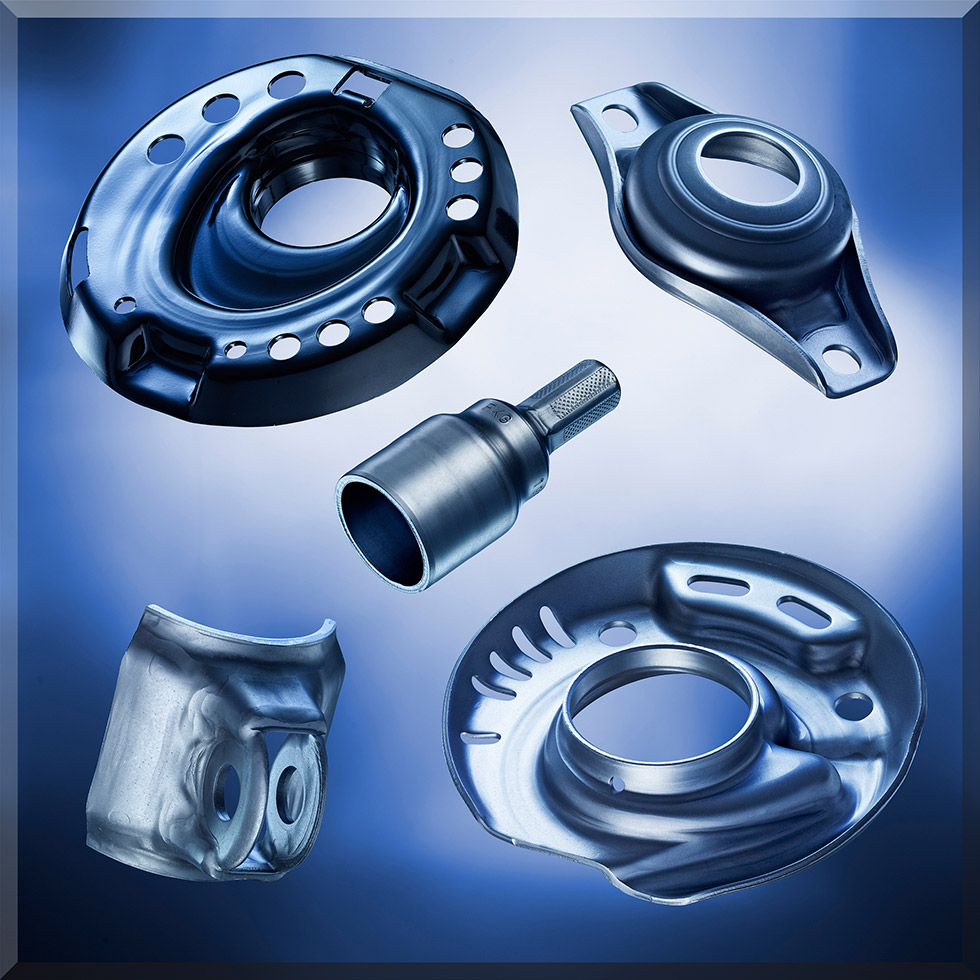
The company Fischer & Kaufmann, by producing modern and economical solutions in the field of exhaust system technology, takes part in the fight for lower exhaust emissions and a cleaner environment. Its components used for the removal of exhaust gases in the SCR (Selective Catalytic Reduction) technique or for exhaust gas treatment are to help car manufacturers reduce exhaust emissions.
Each of the components of the exhaust technology can be supplied in a variety of variants. In response to the customer’s needs, components are made of various stainless steels, as well as chrome steels, e.g. composite inlet and outlet tubes, tube bowl, catalyst carrier, catalyst housing, handle. The portfolio also includes complex components welded using modern robots.
The company also has the ability to produce components and composite components using automated lines of welding robots, CMT welding, MIG / MAG welding, WIG welding, spot welding or other joining methods. As its representatives assure, the quality is guaranteed, inter alia, by documented microscopic inspection of welds.
Hugo Bischopink, the president of Fischer & Kaufmann, answered a few questions, including about the Polish branch of the company, its strengths and plans for the future.
What influenced the decision of the management board to establish a Polish branch of the company and why did you choose Komorniki near Środa Śląska for its location?
Our clients have been encouraging us to establish a foreign branch for years, some even asked for it. In the 1980s, countries such as Spain and Portugal were taken into account. In the 1990s, the countries of Central and Eastern Europe were in the spotlight. Finally, in 2004, after several trips to Eastern Europe, we focused on Poland. In our opinion, Komorniki near Środa Śląska was the best location for the branch, and the decision was primarily influenced by the involvement of the mayor who was in office at that time, as well as the mentality of the people living there.
We are still convinced that the decision made over 10 years ago to locate a foreign branch in Poland, in Komorniki, was right and that, together with our very committed team, we will be able to cope with all challenges. It is worth adding that, compared to the German company, the Polish plant is doing very well. I would like to take this opportunity to thank all employees for the effort put into the development of the company throughout the entire period of operation of the plant.
What is the structure of the Polish branch? How many people work in it? What specialists does the Polish division employ?
We currently employ about 80 people in Komorniki. Administration is very slim because areas like shopping and sales are controlled from Germany. The management board is also based in Germany.
Of course, we also employ specialists. The manager of the tool making department and the press shop manager are specialists who, in addition to supervising production, can also train employees. In the future, we would like to train young employees in the Polish tool shop in accordance with German standards.
What is produced in the plant? Where do these products go?
The Polish branch produces exactly the same elements that come off the assembly line at the plant in Germany – components for bodywork, airbags, exhaust systems, engines and propulsion. Our clients are both car manufacturers – for example Audi, Volkswagen or Škoda – as well as first, second and third tier suppliers, including ZF Friedrichshafen (with branches in Germany, Slovakia or Mexico), Tenneco or Henniges.
Most of our products are exported to European Union countries (to Germany, Spain, Slovakia, Hungary) – it is almost 90% of the products, but some of them also reach North America – so far it is only 3%, but in the near future the share exports outside the European Union will increase.
Please tell me more about the machines that are used in the plant in Poland.
In Poland, we have automatic forming machines with a pressure of 150–630 tons. In addition, our machine park includes welding equipment and CNC lathes. In turn, the tool room is equipped with modern machines for the production of tools, such as eroding, milling or turning centers.
Fischer & Kaufmann was founded in 1938. How did it stay in the market for so long? What, in your opinion, distinguishes it from other companies with a similar profile?
The company has its roots in a family business. Throughout all these years, we have always focused on the company’s development, maintaining research and development at a very high level. We still want to be innovative in order to be able to offer our customers the benefits of our experience. We are not afraid of competing companies, because – just like Fiuka – each of them specializes in something different.
The basic principle of the company’s management is the continuous improvement of processes in each department of the company. Please tell me more about this.
The concept of “zero errors” has been entrenched in the automotive industry for many years. To cope with this strategy, it is necessary to maintain high quality in every department of the company, we do it, for example, thanks to the reward system for submitting new ideas that will in any way contribute to the improvement, improvement of processes, elimination of errors, etc.
The continual process of improving performance is just one of the many tools needed on the path to excellence. Of course, training is also important. Our project management takes its own initiatives, is guided by a zero-error strategy and is highly resilient. It can be seen at individual development and production stages – from construction through the production of prototypes and tool construction to serial production.
The automotive industry, for which Fiuka produces components, is an important industry branch that requires responsible decisions and a sustainable approach – including when it comes to environmental protection. How does Fiuka fit into ecological trends?
In our research and development department, due to many years of experience in the production of components by cold plastic processing of metal, we are able to offer our clients innovative ideas that contribute to the protection of natural resources, and thus – to an active environmental protection, be it components applicable to exhaust technology or other technologies.
To describe it better, let’s try to illustrate it with a short example: in the development phase of the product, we find that we can use thinner material for the production of a given component, the properties of which, after forming, will be the same as that of the thicker material. From an ecological point of view, we have a double benefit in this case: we use less material to produce this detail, and we offer the customer a component that is lighter – in this way, we not only use less energy, but also automatically reduce CO2 emissions.
Fiuka’s specialists simulate the molding processes, thanks to which they are able to draw conclusions for later production at an early stage. Please tell me what this method is about.
With our deep drawing simulation program, we are able to “produce” each part virtually on the computer, of course without the use of any production tools. Therefore, in the initial stage of product development, we can determine whether a given planned production process has a chance of being implemented or not.
In addition, we can check how, with the assumed material thickness, the so-called critical places of a detail in serial production due to durability. This is perhaps the most important step in assessing whether a component can be put into series production. In addition, in addition to phase laboratory measurements of components and complex components, we can also offer optical measurements.
What are the company’s plans for the future? Are you thinking of expanding or opening a new chapter?
As I mentioned before, we would like to educate toolmakers, machine and device operators, as well as machining specialists according to German standards. It is a dual education system with an average duration of three years of study. In the case of the dual system (in the workplace and vocational school), there are no formal requirements – it is open to all secondary school graduates, regardless of their academic performance, as well as to young people who do not have a school leaving certificate.
Our company would like to offer all those graduates of schools and people with a knack for technical professions a solid education, and thus – provide a high-quality workplace that requires special abilities.
In addition, we are currently in the preparatory phase for the expansion of our Polish branch. After completing all the necessary formalities, the pressing and tool shop will be expanded. Next year, we intend to invest in another forming machine with a pressure of 315 t, and in the near future we will specify further development plans, but we are already thinking about equipping our pressing plant with a press with a force of 1600 t in order to be able to produce elements for gearboxes. The decision to set up another branch will be made when necessary, at the moment we do not have any such plans yet.


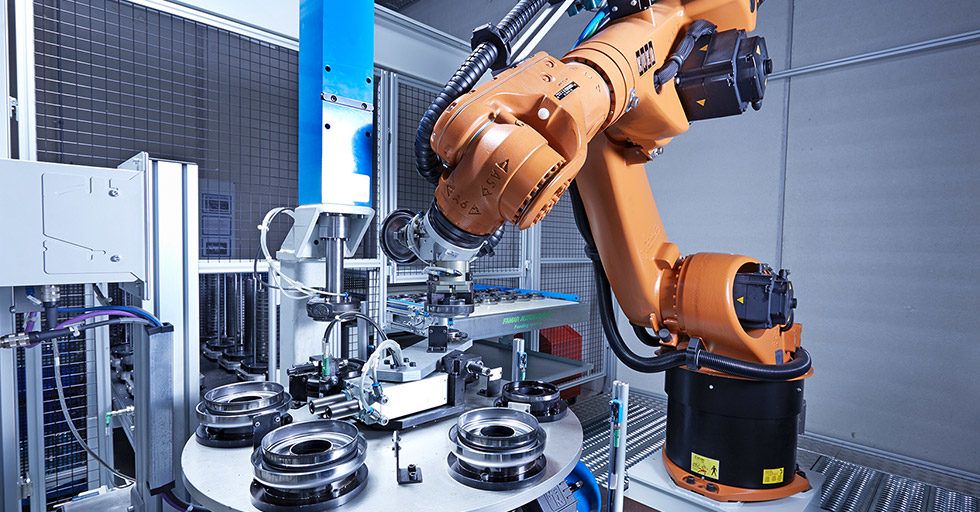
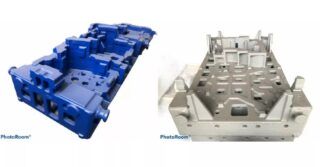
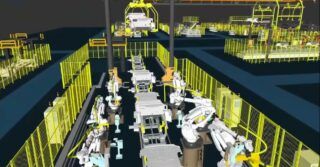
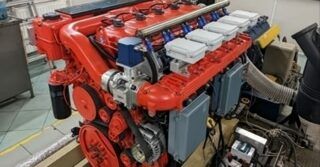

![The importance of artificial intelligence in transport and automotive industry is growing [REPORT] The importance of artificial intelligence in transport and automotive industry is growing [REPORT]](https://industryinsider.eu/wp-content/uploads/xcity-320x167.jpeg.pagespeed.ic.xFkQdk7qXO.jpg)
